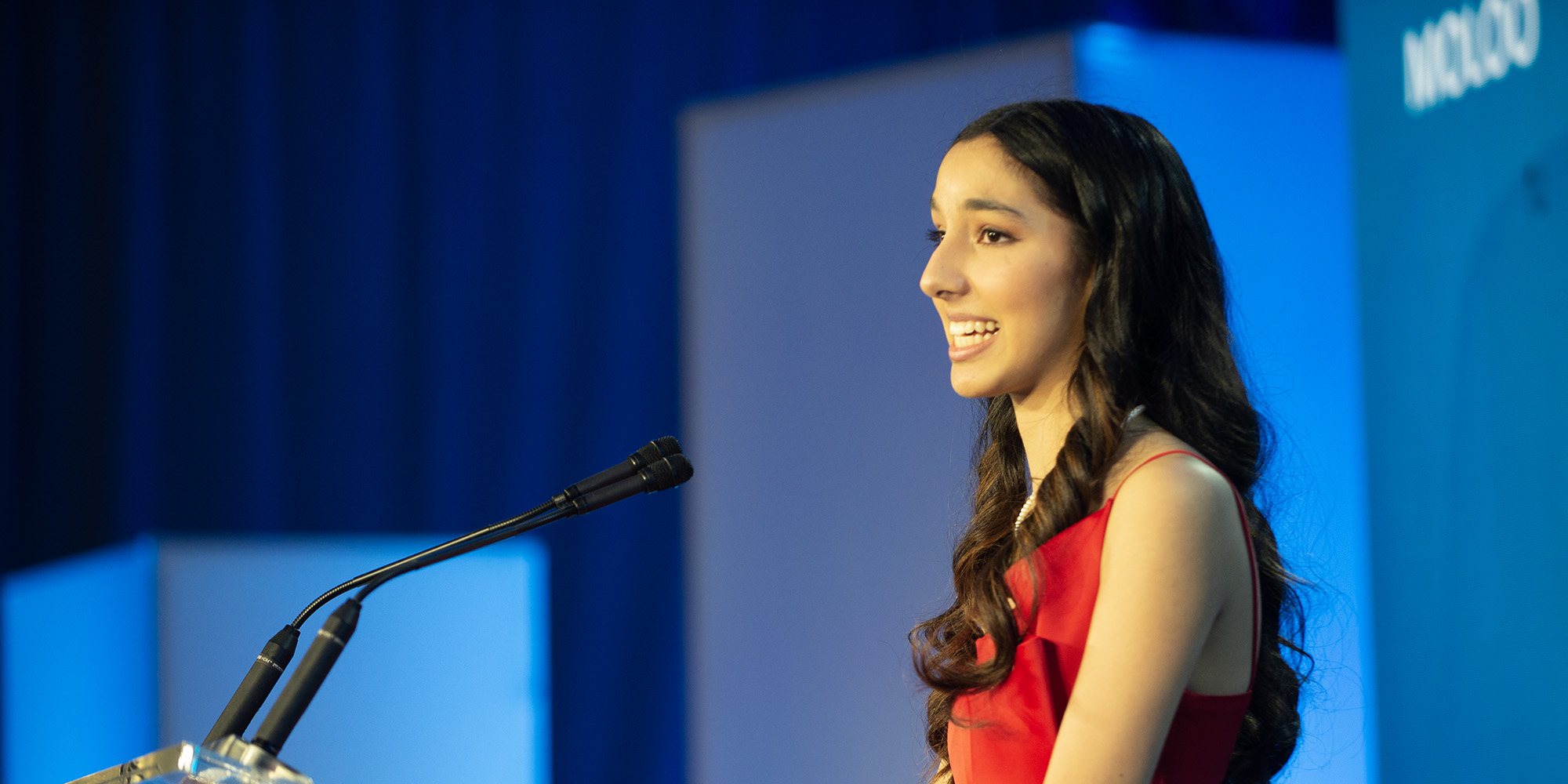
Naila Moloo: A formidable champion for the planet

The following is a transcript of an acceptance speech given by Naila Moloo at the Public Policy Forum’s Testimonial Dinner Awards and Honour Roll on April 27, 2023 in Toronto.
Thank you so much for that very generous introduction and thank you for having me here today. It is a true honour. One of the things that I find really neat about this event is that it brings together stakeholders and decision-makers from various sectors, and this very much reflects the Public Policy Forum’s vision to create policy solutions that drive progress towards a more sustainable future. Reading about the other award winners tonight, I am in awe. Everyone is amazing. And the one thing we can all take note of is that everyone is from different fields, all contributing to society in very meaningful ways. The Public Policy Forum focuses on achieving tangible results in innovation, public engagement and governance. And I think that in order for us to tackle wicked problems like environmental degradation, we need to have an intersection of all these sectors.
For me, and a lot of people in my generation, the environmental crisis we are facing is a defining problem. The U.N. is now talking about this triple planetary crisis where we are dealing with climate change, pollution and biodiversity loss. As the U.N. secretary general has said, humanity is waging war on nature and this is suicidal. We need to find a way to make peace with nature, and we need to do this now. So, I want to talk to you a little bit about the research that I’ve been doing, which also helped me realize why these intersections that the Public Policy Forum is fostering are so important.
So, my research began in Grade 9. When I would drive to school or the mall or wherever, I was noticing a lot more solar panels being put up. But when I looked into the statistics, I saw solar energy only made up three percent of our electricity generation. This made me think about where solar panels were being placed, which was roofs. And I started to develop an idea for a flexible solar panel where I’ve been utilizing nanomaterials like perovskites and silver nanowires. I am attempting to use a lightweight, biodegradable and translucent paper material to create an inexpensive, plastic-free solar panel that can be placed on any surface, helping to tackle this issue of accessibility we see with solar panels traditionally being placed on roofs.
My other project is a bioplastic from duckweed, a bit of a strange sounding species, and this is a second-generation aquatic feedstock, meaning humans don’t consume it and it grows in water as opposed to most bioplastics today, which come from crops that cut into human consumption and that take up acres of land to grow. So it’s not really that sustainable, if you think about it. Duckweed is neat because it can double its biomass in as little as 16 hours, can be vertically farmed, and it’s found on every continent except Antarctica. And those properties actually make the species quite irritating to most people because it grows all over their lakes. But for bioplastics that we want to scale, the extent of plastics today, that’s actually quite ideal. So there’s biomass, which some people may find irritating, can be transformed into a plastic that is both biodegradable and 3D principle.
But these innovations can only go so far without effective public policy to support their adoption and implementation. Events like these are recognizing that innovation must go hand in hand with public policy, and I’m optimistic that with continued technological progress, collaboration and effective policy solutions, we can create a more sustainable future for ourselves and for future generations. Whether we are working in policy, innovation or elsewhere, now is a time for us to work together. As William Ruto at COP26 said, in the face of impending catastrophe, whose warning signs are already unbearably disastrous, weak action is unwise; no action is dangerous. With that, I hope that we can all take action together. Thank you so much and thank you for having me here today.


